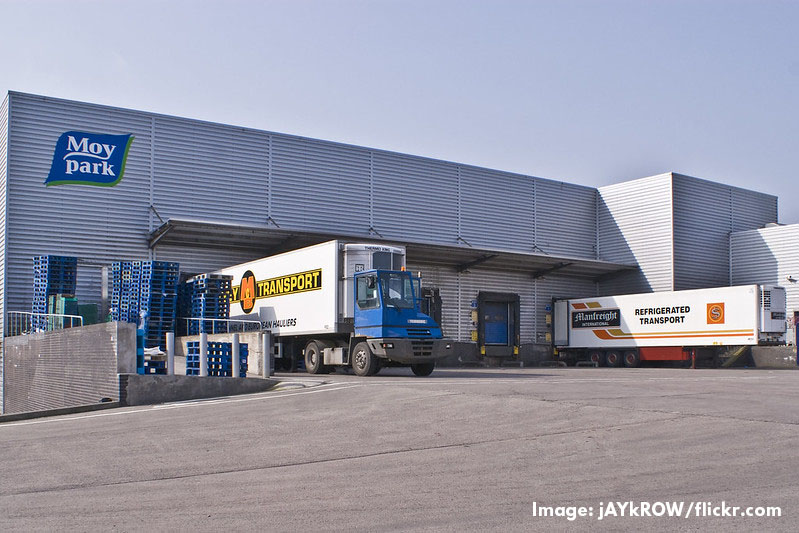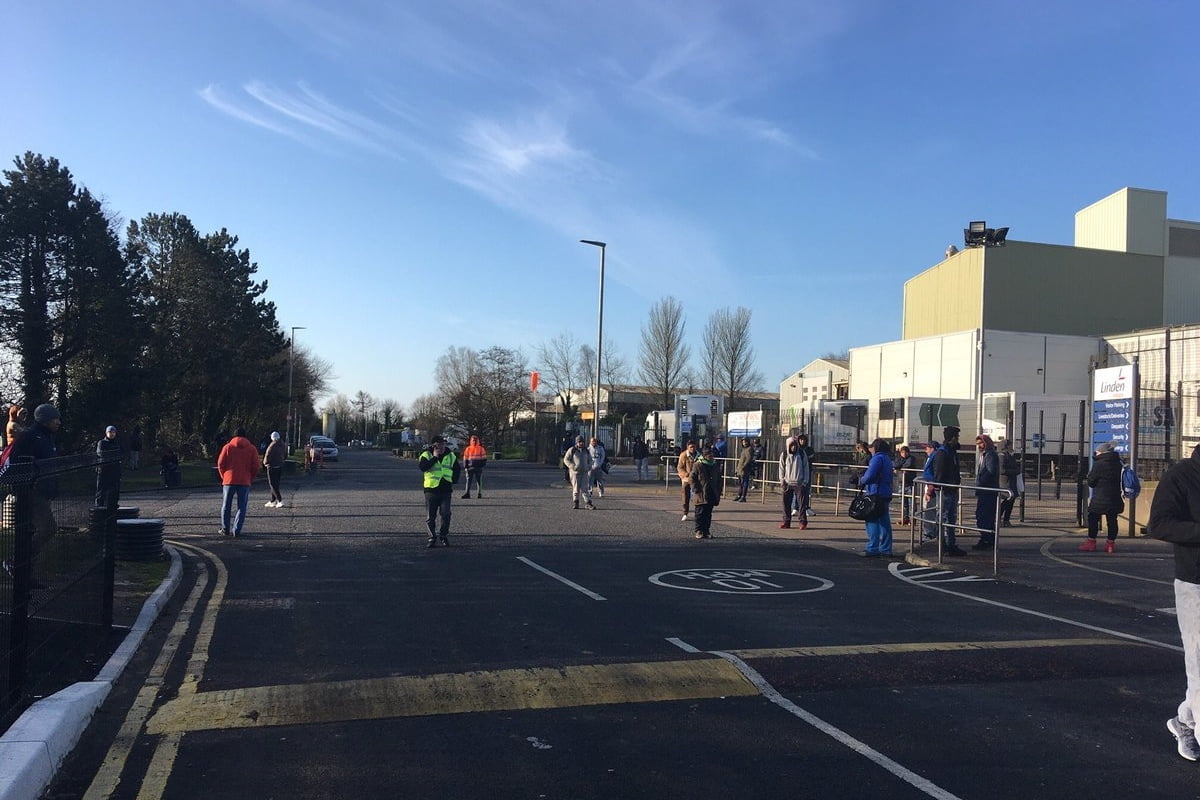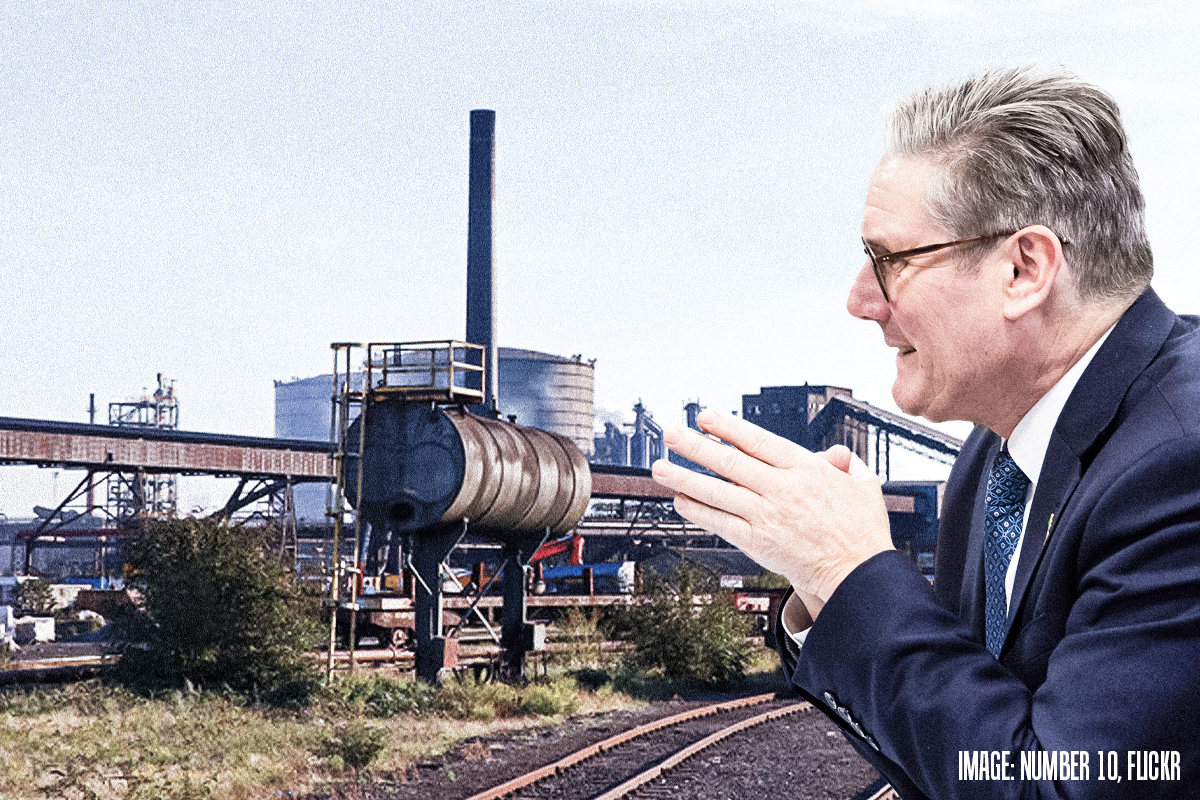Workers in the North of Ireland are fighting back against bosses refusing to protect their lives. At Moy Park meat processing facility 1,000 workers downed tools and walked out. These essential workplaces must be brought under workers’ control.
Around the world, workers in one country after another are feeling the impact of the coronavirus pandemic in their everyday lives. Millions have already been laid off. Over ten million in the United States, and almost three million are predicted to lose employment in the UK.
This crisis has shown who the real ‘key workers’ are: they are among the most exploited sections of the working class. In one country after another, where these workers are now expected to risk their lives by continuing to work, they have begun fighting back against those bosses who refuse to spend even a penny to protect lives, and who use the ‘essential’ character of their businesses to make super-profits.
Fightback
Towards the end of March, Northern Ireland saw its own echo of this worldwide fightback. At the Moy Park meat processing facility at Seagoe Portadown, 1,000 workers downed tools and walked out in protest against the lack of cleaning and social distancing measures in their workplace.
A thousand workers walkout at Moy Park site at Seagoe in Portadown after company profits are put before safety https://t.co/FI5JIO1hSq pic.twitter.com/5rwmlkxJn4
— Unite the Union NI (@UniteunionNI) March 25, 2020
Hours earlier, at ABP Meat Production in Lurgan, it was reported that 80 workers also walked out, refusing to begin work. Two days later, at Linden Foods in Dungannon, 60 workers again stopped work over what Unite described as a “total lack of social distancing measures”.
In these enormous factories, workers are practically on top of each other in the production line. People work long, hard and often antisocial hours, with few breaks. You do not need to look far for reviews on indeed.com by workers who describe 10 or 11-hour shifts, with only 35-minute breaks. Staff areas are described as dirty; managers expect a robotic pace of working in order to meet targets; and pay is dismal.
In fact, in 2018, Moy Park was caught breaking the law by failing to pay the minimum wage. The company pleaded that these were mere “isolated incidents”, yet it was forced to pay back an average of £100 to 338 workers!
These are the conditions the UK’s ‘key workers’ in food production are forced to work in, risking their health and that of their families.
Bosses’ hypocrisy
 Moy Park is Northern Ireland’s largest business, by turnover and number of employees. It employs over 1,000 workers recruited from abroad, in Lithuania, Poland and Portugal. It supplies the majority of UK supermarkets with poultry and other animal products.
Moy Park is Northern Ireland’s largest business, by turnover and number of employees. It employs over 1,000 workers recruited from abroad, in Lithuania, Poland and Portugal. It supplies the majority of UK supermarkets with poultry and other animal products.
Of course, Moy Park are effusive with praise for their ‘key workers’, saying they are doing all they can to show appreciation. Yet basic safety measures are not being implemented.
A change.org petition and a Facebook page started by a Moy Park worker alleges the factories are “not safe”; what safety measures have been implemented are just to show off to interested journalists, while the majority of workers must carry on as usual, away from the cameras.
The petition demands that Moy Park respect workers’ rights, and that people should be allowed to stay away from the factory if they feel vulnerable.
This is the business that not only refuses to pay its workers their wages if they are forced to self-isolate, but wouldn’t even respond to Unite’s requests for information on the subject.
They have since announced that they will pay “minimum of 80% of contractual pay”, in line with the UK’s bailout plan – or in other words, a 20% pay cut. What exactly is 80% of a starvation wage, besides an insult?
Executive failure
The Health and Safety Executive (HSE) announced mid-March that they had recorded a 900% increase in complaints with regard to workplace safety. The response from the Stormont Executive and Assembly has been conflicting and inadequate.
First Minister Arlene Foster (DUP) and Justice Minister Naomi Long (Alliance) said it was okay for non-essential workplaces to remain open, and it would be up to individual bosses to decide if it is safe to do so. Foster even said as many businesses as possible should remain open, to preserve the “economic base” of Northern Ireland for when the pandemic ends.
Sinn Féin’s John O’Dowd and Colm Gildernew, and the SDLP’s Matthew O’Toole, meanwhile, have said non-essential businesses must close, and the HSE should take a proactive role in enforcing workplace safety guidelines.
As for Arlene’s “economic base”, that is what is most ‘essential’ for the bosses at Moy Park and other factories: the bottom line.
The Financial Times recently reported that sales of chicken have risen by almost 20% due to panic-buying and stockpiling. This brings the value of chicken sales – of which Moy Park takes a lion’s share – to £34 million for the quarter. They are even stepping up production, advertising 500 temporary jobs.
Putting profits before lives
In a statement, Moy Park management says it “refutes” the claims made by Unite regional officer Sean McKeever that the company puts profits and corporate greed ahead of workers’ wellbeing. This is a scoundrel’s type of “refutation” – a denial without evidence.
Moy Park is owned by one of the world’s largest meat processing conglomerates, whose owners are mired in corruption and scandal in Brazil and the United States.
In Brazil the company was shown to have had thousands of politicians in its pocket. In the North of Ireland it is no different.
Moy Park and others in the poultry industry profited immensely from the DUP’s Renewable Heating Incentive, fleecing hundreds of millions from taxpayers and channelling it into their own coffers. If Arlene Foster and company have shown us once, they’ve shown us a thousand times that they will always put the interests of business ahead of the interests of working people.
Slaves to capital
 The coronavirus crisis has shown us who the real ‘key workers’ are. It is not the politician or the CEO – it is the factory worker, the nurse and the shop assistant.
The coronavirus crisis has shown us who the real ‘key workers’ are. It is not the politician or the CEO – it is the factory worker, the nurse and the shop assistant.
In normal times, these workers endure numerous insults and struggle to make ends meet. However, the pandemic has created an extraordinary situation. The parasitism of the bosses, banks and landlords has been completely laid bare.
Millions of workers can see it is their labour that creates not just society’s wealth, but all the means for society to exist, including the bare essentials.
Workers everywhere who are demanding measures in response to the coronavirus are in fact demanding much more. They are demanding they be given basic human dignity, respect for their lives, and are no longer treated as slaves to capital. And everywhere – through strikes and walkouts – workers are forcing concessions from their bosses.
Socialist struggle
 Workers should be guaranteed decent pay that reflects the indispensable character of their work, with 100% pay for workers who are sick or self-isolating. All necessary PPE must be provided – and it must be provided at the expense of these bosses who are making bumper profits.
Workers should be guaranteed decent pay that reflects the indispensable character of their work, with 100% pay for workers who are sick or self-isolating. All necessary PPE must be provided – and it must be provided at the expense of these bosses who are making bumper profits.
The bosses clearly do not care about the workers’ health and safety, and will continue to scrimp and save at the cost of our lives. These essential workplaces must be brought under workers’ control so that the workers can enforce deep cleaning and the adequate provision of social distancing.
There can be no return to normal once the pandemic ends – not least because the entire capitalist system is teetering on the edge of disaster.
Daily the working class is raising its sight to see that these everyday struggles are connected to a wider struggle in society: of one class against another. That is the fight for socialism.






